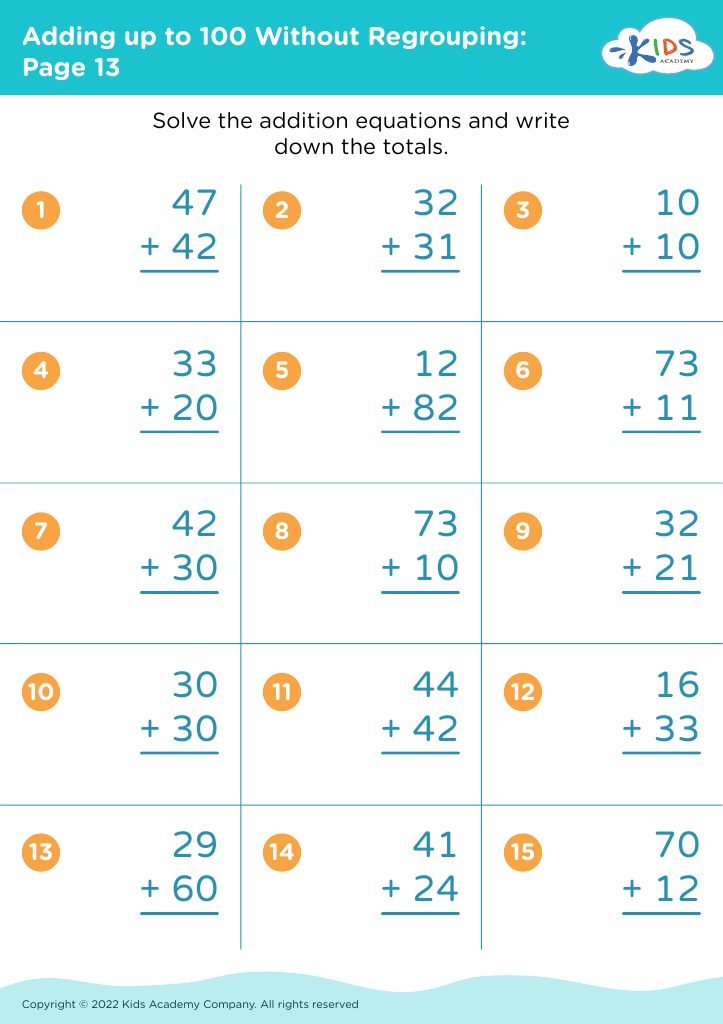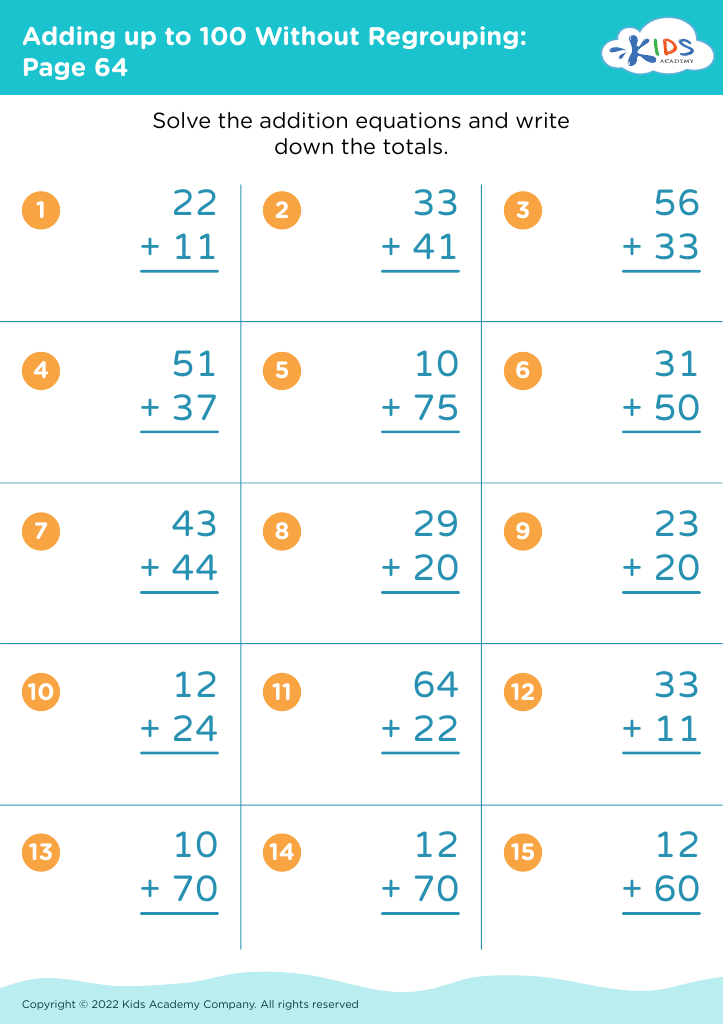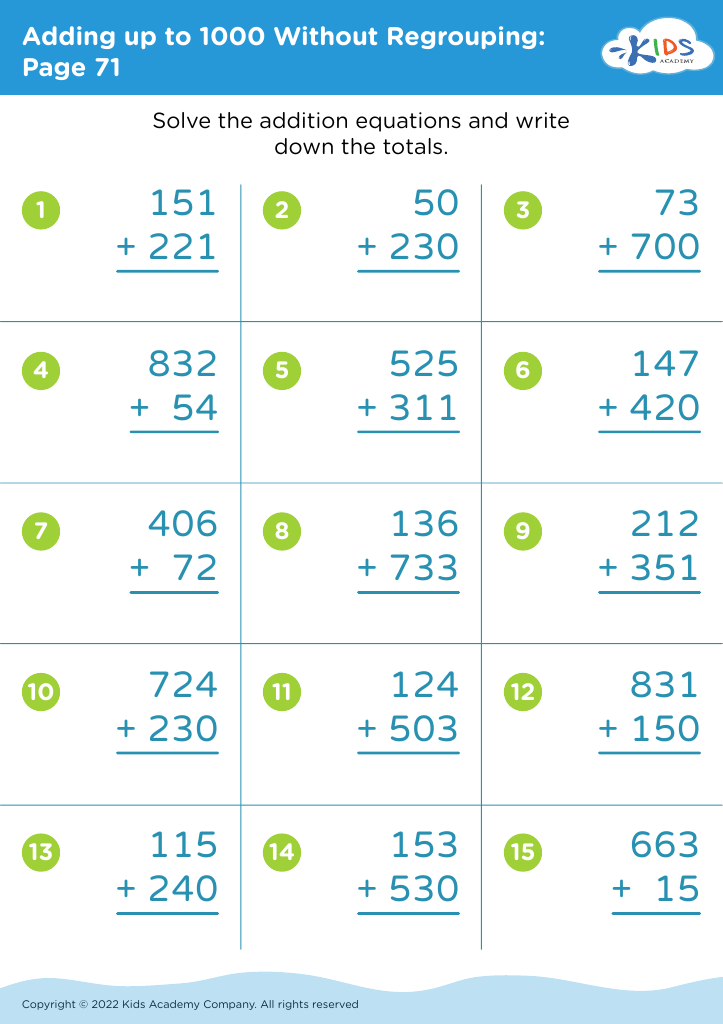Understand sequences Worksheets for Ages 5-8
5 filtered results
-
From - To
Discover our engaging "Understand Sequences Worksheets" designed specifically for young learners aged 5 to 8. These interactive resources help children grasp the concept of sequencing, a vital skill for early literacy and mathematics. Our colorful and informative worksheets guide kids through fun activities that involve arranging images, patterns, and numbers in logical order. These exercises not only enhance critical thinking but also foster creativity and comprehension. Tailored to meet various learning styles, these worksheets ensure that your child builds a strong foundation in understanding sequences. Perfect for classroom use or at-home practice, ignite your child's learning journey today!
Understanding sequences is fundamental for children's cognitive and mathematical development, particularly for those aged 5-8. At this stage, children begin to grasp the concept of order and patterns, which lays the groundwork for various skills.
First, sequences enhance logical thinking. Recognizing patterns in numbers, stories, or daily routines helps children process information systematically. For example, predicting what comes next in a sequence sharpens analytical skills and fosters problem-solving abilities.
Second, sequences are integral to mathematics. Mastery of counting sequences, skip counting, and simple addition and subtraction requires an understanding of how numbers relate to one another. This concept translates into more complex operations later in their education, such as multiplication and division, making early sequence understanding a vital precursor to future math success.
Additionally, sequences also play a crucial role in literacy. Understanding story structures—beginning, middle, end—enables children to comprehend narratives better, strengthening their reading and comprehension skills.
Thus, parents and teachers should prioritize teaching sequences, as this foundational knowledge supports not only academic achievement but also overall intellectual development, preparing children for lifelong learning. Engaging children in fun, sequential activities makes this learning both effective and enjoyable.






















